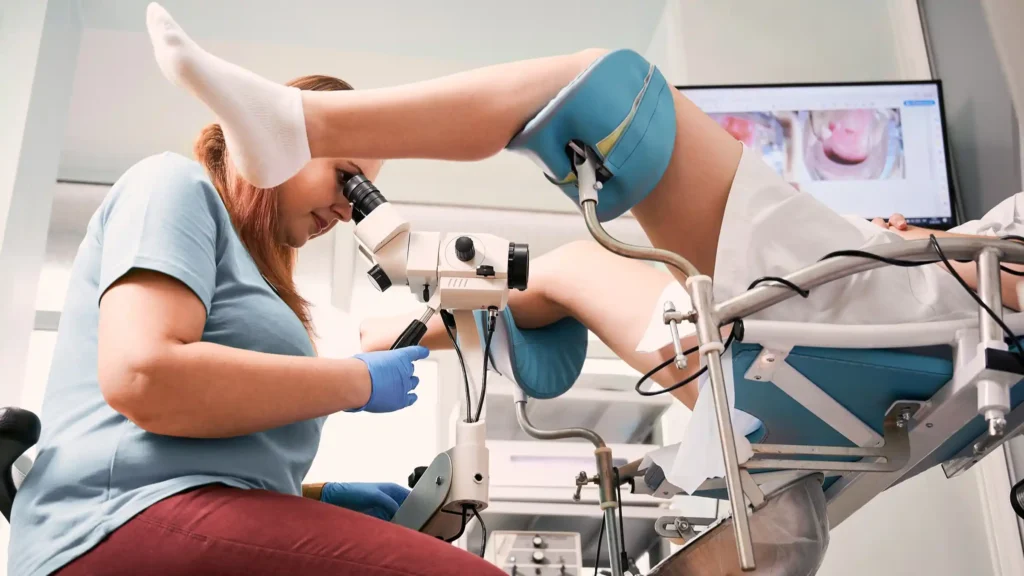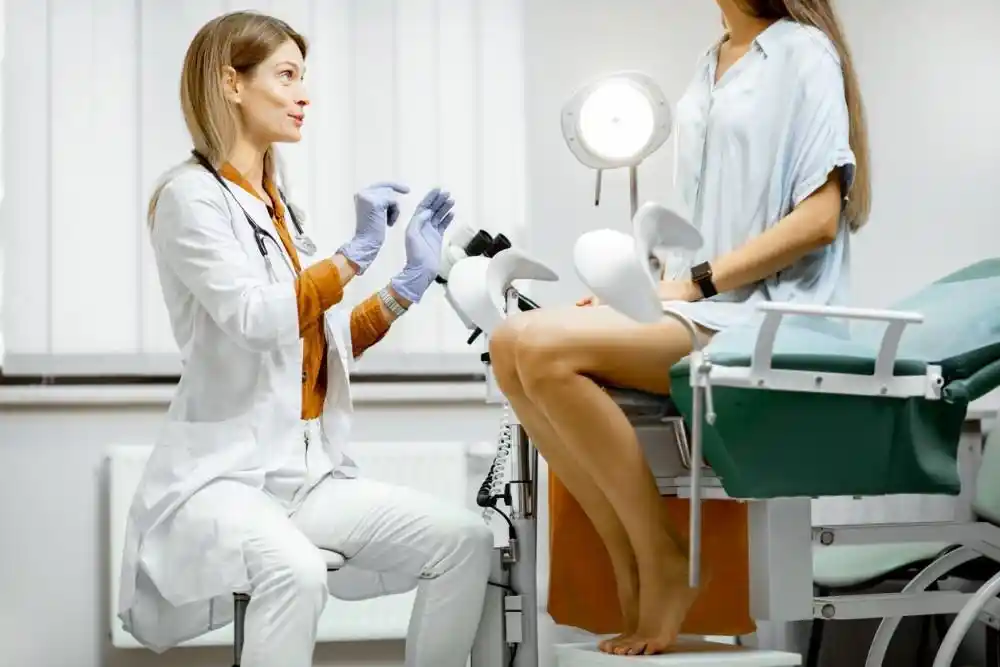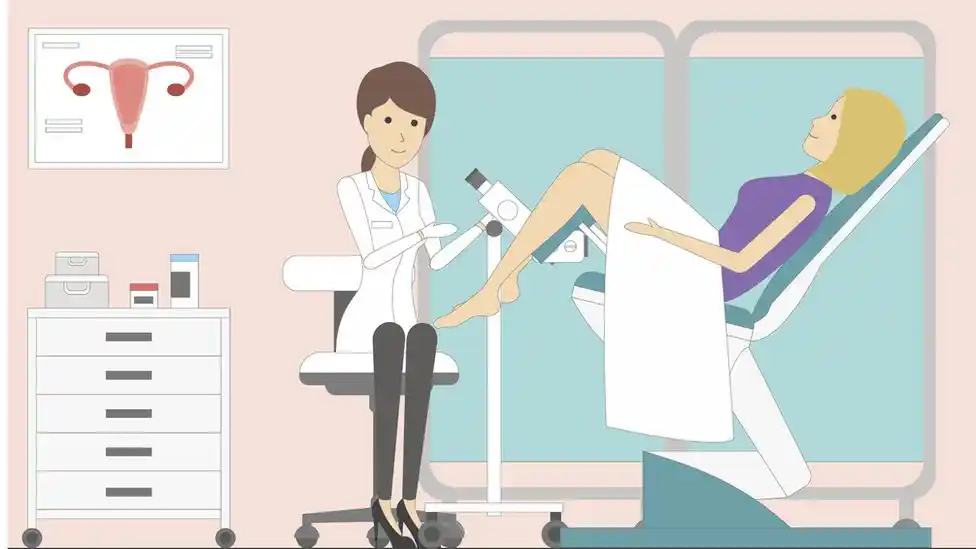Feeling nervous before a Pap smear is very common. The thought of the test can make you think, Does a pap smear hurt? A Pap smear is a brief examination performed to test the condition of your cervix. Most people will only feel the pressure, not terrible pain. However, it is perfectly reasonable to ask Do pap smears hurt and Is the pap test painful, especially if this is the first time.
This guide will even provide some situation-based questions, like Does a Pap smear hurt if you’re a virgin and Does a Pap smear hurt when pregnant. Being aware of what to expect can help you feel more at ease and certain.
What Is a Pap Smear and Why Is It Important?
During a Pap test, a healthcare provider has a thorough look at the cervix for any early changes that would recommend action. The testing happens while you lie on an exam table. A small instrument, called a speculum, is gently placed inside the vagina to open it just enough for the provider to get a clear view.
A small tool called a speculum is gently placed in the vagina to open it slightly. Then, a soft brush is used to collect a few cells from the cervix. This is the part where some people think about does a pap smear hurts, but the feeling is usually more like light pressure.
The Pap smear/ Pap test is often performed by a doctor, nurse, or women’s health specialist, and from start to finish, it only takes a few minutes. Most people are surprised and happy that their appointment was so short.
While some people feel temporary mild discomfort associated with taking cells from the cervix, this part of the test is never meant to elicit sharp pain. If you or your child ever experiences strong pain, be sure to tell your provider right away.
Knowing what happens during your appointment is important, and sometimes just knowing the process can help the experience feel easier. This 3-5 minute process is brief and simple, and will help your overall health.

Common Myths and Misconceptions About Pap Smears
Pap smears are undoubtedly important for cervical health. However, there are many misconceptions that can cause unnecessary anxiety or confusion in your case. Let’s debunk some of the most common myths surrounding the procedure so that you can understand its importance and ease any of your concerns.
1. A Pap Smear Hurt for First-Timers
It’s normal to feel anxious for the first time. The anxiety generally comes from not knowing what the experience entails. This is why questions like Is getting a pap smear hurt are common from novice patients.
To remain relaxed during your appointment, be sure to take deep breaths and try to keep your pelvic muscles relaxed and loose. If you are tense, you may create more pressure. You can also ask the health care provider to go slow.
Open communication with your provider is very important. Feel free to tell them if you feel any discomfort while they are completing your examination. This will help you feel a bit more relieved and help the experience be easier and more calming.
2. Pap Smears are Painful
Some people experience very little discomfort, while others experience more sensitivity. Which is why a pap smear is painful has many different answers.
Pain or pressure from a pap smear might depend on:
- Vaginal dryness
- Tight pelvic muscles
- Existing medical conditions like endometriosis or vaginismus
If you correspond with any of these attributes, be sure to let the provider know. If you experience any of these, the provider can complete the examination using a smaller speculum, use lubrication, or take their time while in your body for a comfortable experience.
3. Pap Smear Hurt If You’re a Virgin
The test can be done gently, especially for someone with new ( yet vaginal ) sexual experiences. A smaller speculum can be used to help make the exam more comfortable. It is important to let your doctor know that you are a virgin before the test. Try to stay calm and breathe slowly to help. Your comfort matters. Does a Pap Smear hurt if you’re a virgin is a matter of how relaxed your muscles are and how gentle the provider is.
4. A Pap Smear is Painful While Pregnant
Does a Pap smear hurt when pregnant is a common concern, but the test is safe during pregnancy. The cervix has an increased blood flow during pregnancy, which can make you feel slightly more sensitive in that area. Providers typically move more slowly and are generally more gentle to keep you comfortable. The exam is still fast, and you may feel pressure rather than pain.
5. A Pap Smear Causes Infertility
If you are asking yourself if a Pap smear can cause reproductive changes, just like an ovarian cyst can cause infertility, the answer is no. A Pap smear takes a very small number of samples of cells from the surface of the cervix. It does not affect the uterus, ovaries, or the ability to get pregnant.
Can You Have Your Pap Smear During Your Period?
It is generally acceptable to have the Pap smear during a light period. The procedure can be completed, and the physician can still get a good view of the cervix. However, if you’re having heavy bleeding, it can complicate the results. In that case, your physician might ask you to come back another day. A quick phone call to your clinic will help determine the best course of action.

Is it Normal to Have a Little Spotting Following the Test?
It is typical to have a little spotting after your Pap smear. This presence of blood is generally light and may last from several hours to 1 day. After your Pap smear, your cervix may become slightly irritated, leading to light bleeding. To put this into context with your normal consistency of mid-cycle spotting, you can read more here: spotting-during-ovulation.
If the bleeding is heavier than when you typically would, or if the bleeding lasts longer than a couple of days, you should discuss this with your doctor.
When Can It Feel More Uncomfortable?
A Pap exam may feel more uncomfortable if pelvic muscles are tight. This often happens when the body is nervous or tense. When there is vaginal dryness or an infection, it may feel a little more intense because that area may be more sensitive.
If there is already pain when having sex, the Pap exam could also feel a little uncomfortable. It is important to tell your provider how your body is feeling so that they can be gentle and take their time.
Helpful Tips to Reduce Pain and Discomfort During a Pap Smear
Pap smears are really important for cervical health, but they can be a source of some discomfort at times. Therefore, you should always prepare yourself for a pap smear. Let’s have a look at a few tips to make your experience more comfortable:
1. Communicate with Your Provider: Let your healthcare provider know if you’re anxious or concerned. The reason behind it is that they can adjust your procedure according to your comfort. For instance, using a smaller speculum or applying less pressure.
2. Relax Your Muscles: Tension can increase discomfort; therefore, you can take deep breaths and consciously relax your pelvic muscles to lower the pain intensity.
3. Empty Your Bladder: A full bladder always increases pressure, which can make your procedure more uncomfortable. Hence, you should make sure to empty your bladder beforehand.
4. Time It Right: Try scheduling your Pap smear when your cervix is least sensitive. For instance, avoid this test during your period or the days just before ovulation.
5. Practice Deep Breathing: Slow and deep breaths can literally relax your body and reduce pain perception within a few minutes. You just have to inhale deeply for a count of four, hold, and later exhale slowly.
6. Consider Pain Relief: In case you’re worried about pain, you must talk to your provider about using over-the-counter pain relief or a local anesthetic.
7. Focus on the Benefits: While going through the procedure, you must know that the discomfort is brief. Moreover, the benefits of early cervical cancer detection are way more than any temporary discomfort.
8. Distract Yourself: You can take your mind off the procedure by listening to calming music or you may as well practice mindfulness to reduce anxiety.

When to Seek Medical Guidance
Typically, after a Pap smear, the discomfort is mild and goes away quickly. If you experience severe pain, you should call your doctor. Additionally, if bleeding is heavy, not just light spotting, that is another reason to be checked.
If you are experiencing any discomfort that lasts more than 1 to 2 days, you should speak with a healthcare provider. It’s always safer to seek support if something doesn’t feel right in your body. You can either call Novamed or book our urgent care services for women online to seek any kind of medical guidance.
Conclusion
Getting a Pap smear is an easy and quick screening test that is considered to be an important part of protecting your cervical health. It helps identify problems before they become symptoms. Staying relaxed, continuing to educate yourself, and scheduling regular screenings could make a really positive difference in your long-term health. The take-home message is that your comfort and health are important.
Ready for supportive and gentle women’s health care? Book your Pap smear with NovaMed today and feel confident, comfortable, and cared for.






